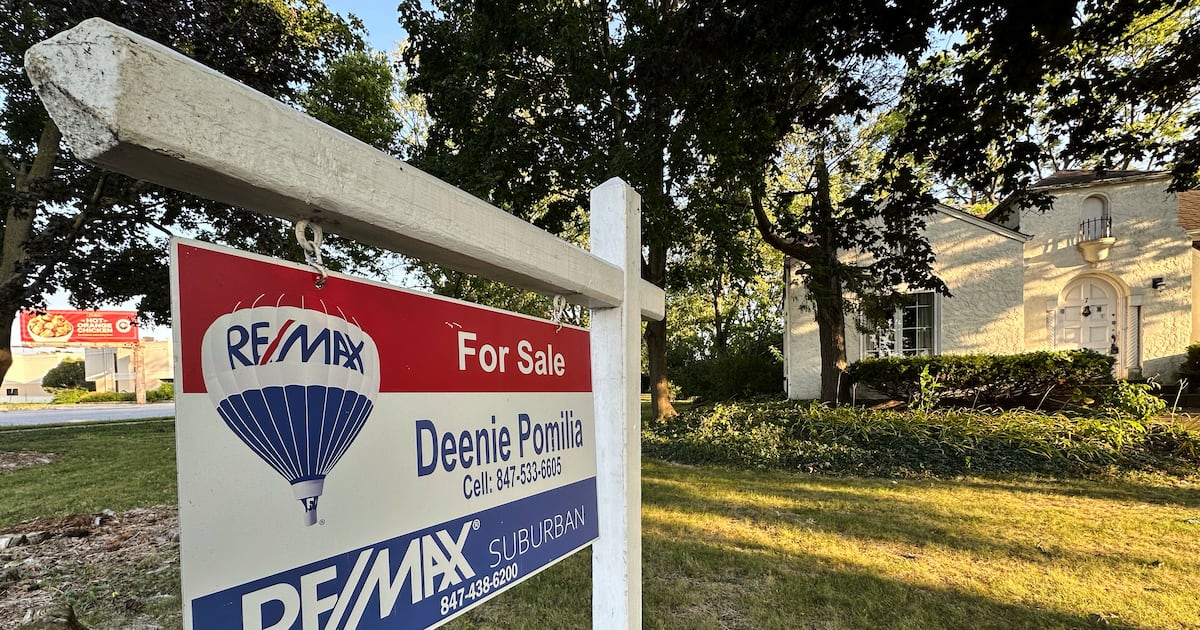
A mix of high borrowing costs, dwindling job openings and growing economic and political uncertainty have left many U.S. households at a standstill, with many Americans saying they feel unable to buy new homes, take new jobs or move to new cities.
The Federal Reserve’s interest rate cut last week – the first of the year, with the expectation that more will follow – may have boosted stock prices, but it isn’t likely to make much of a difference to everyday Americans, economists say. While the economy is generally in good shape, many people feel stuck.
“Consumers have been increasingly paralyzed by economic uncertainty, tariffs, rising inflation, chances of a recession – and a quarter-point change in the Federal Funds Rate rates isn’t going to solve those problems,” said Jessica Riedl, senior fellow at the Manhattan Institute, a conservative think tank. “There are much larger headwinds holding back the economy that must be addressed first.”
Monthly home sales have recently bottomed out, reaching lows last seen after the Great Recession in the 2000s. Americans aren’t leaving their jobs or getting new ones. Hiring has stalled considerably this year, with employers adding 88,000 jobs in the past three months, roughly one-third of last summer’s count. And Census data shows that Americans are generally moving less – to new homes or cities – than they have in decades.
For the Americans who have locked in low mortgage rates and are happy in their jobs, economic inertia may not be a problem. But for many others – including recent graduates and the unemployed – the lack of opportunities is making it difficult to find a foothold in this economy.
“Job-switching is so fundamentally important to an economy’s health,” said Allison Shrivastava, an economist at Indeed Hiring Lab. “You really do need churn: That’s the best way for workers to get better wages and to move labor where it needs to go. Right now we’re in a stagnant place where people can’t progress in their careers.”
Jacinda Snyder, a 23-year-old in South Carolina, feels stuck in just about every way: Nearly a year after graduating with a degree in environmental science, she’s still looking for a job and living with her mother. The combination of few work opportunities and high housing costs are making her feel increasingly closed in, she said. Snyder doesn’t have a car and can’t afford to move, leaving her with limited job prospects.
“Getting a job is so hard right now. Finding a place to live is hard,” she said. “There’s just no way to have stability.”
Nearly twice as many Americans – 63 percent – say it is a bad time to find a job than those who think it’s a good time to find a job, a new Washington Post Ipsos poll shows. Another survey, by the New York Fed, this month found that Americans’ confidence in their ability to find a new job is at a record low.
And although people who switch jobs have historically enjoyed higher wage increases than those who stay in the same position, that dynamic has recently reversed: Job-stayers have gotten higher pay increases than job-switchers for six of the past seven months, an Atlanta Fed analysis of Labor Department data shows.
“If you have a job now, you’re likely okay,” said Wayne Winegarden, an economist at the Pacific Research Institute, a free-market think tank. “It’s the people on the outside who are struggling.”
[Retail sales up 0.6% in August from July even as tariffs hurt jobs and lead to price hikes]
Charles, who is 64 and lives in Maryland, lost his federal contracting job in information technology about a year ago. Since then, he has applied for more than 150 positions without success and recently began working part-time at a grocery store.
“I’m used to a higher income and having more stimulating work,” said Charles, who spoke on the condition that he be identified only by his first name out of fear of jeopardizing his employment prospects. “I’m not sitting idle but I’m also not moving in the direction I would like to be. It feels like treading water.”
Charles and his wife have a daughter in college and are quickly working through their savings. But, he says, there’s one bright spot: They bought their home in 2018, before prices and mortgage rates shot up.
“We are stuck in a beautiful home at a 3 percent interest rate,” he said. “I know for a fact we wouldn’t be able to afford this house now.”
Many homeowners, including those who locked in low rates during the pandemic, are in similar positions around the country, contributing to the housing market’s gridlock. Interest rates for a 30-year fixed mortgage are hovering around 6.3 percent – more than double where they were four years ago, easily translating into hundreds of dollars more per month for a modestly priced home.
The lack of affordable housing and available jobs is contributing to broader economic immobility. Census data shows that the share of Americans who move has consistently fallen between 2006 and 2023, the latest year for which there is data. The trend has probably intensified since then, economists say, as opportunities in the labor market have dried up.
The White House has maintained the economy’s pockets of stagnation are a temporary blip, before the Trump administration’s policies result in plentiful jobs and rock-bottom interest rates.
“In just eight months, the Trump administration has implemented the most aggressive pro-growth economic policy agenda in modern American history,” spokesman Kush Desai said, citing recent tax cuts, deregulation and trade deals. “Americans can rest assured that the best is yet to come.”
But many people say they remain cautious. They worry that tariffs and immigration crackdowns may reignite inflation and lead to more economic uncertainty.
In Council Bluffs, Iowa, Melissa Bratcher has put a range of life decisions on hold this year: She’d like a job, but has given up on looking for one. And she’d like a new refrigerator, but that’s on pause, too.
“I don’t want to spend any money, at all, on anything that’s not necessary right now,” said Bratcher, 54, who says it’s been all but impossible to reenter the workforce after 20 years away, raising her son. “We as a couple are doing pretty okay – my husband makes decent money – but what if he loses his job? Nobody is hiring. We can’t afford to move. It’s like we’re just waiting, to see how things turn out.”



